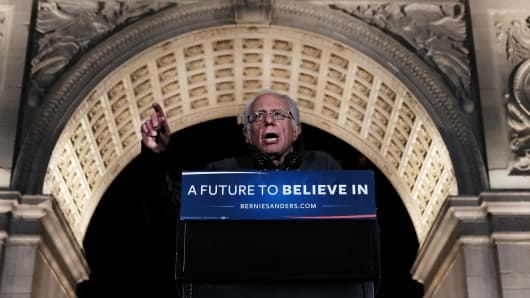In politics, there is no such thing as second place, but that will change in June regardless of where Sen. Bernie Sanders finishes. Sanders wins even if he loses.
If Sanders catches Secretary Hillary Clinton in the delegate count and overcomes the super delegate obstacle, he could snag the Democratic nomination, a remarkable feat that seemed impossible just a few months ago. And even if he doesn't go on to win the general election, his nomination would change the focus of the Democratic platform and move the party further to the left over the next four to eight years.








